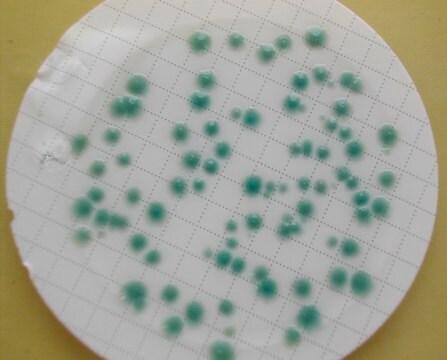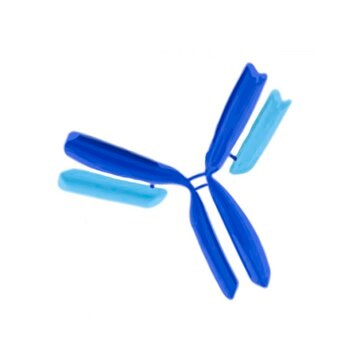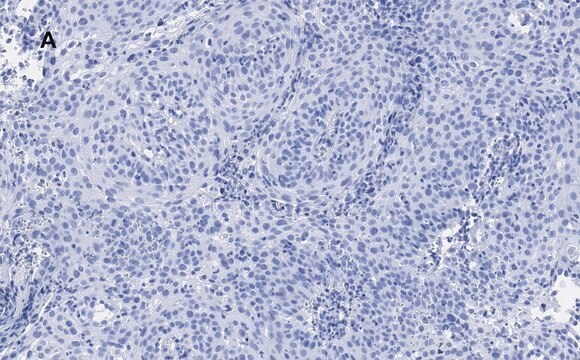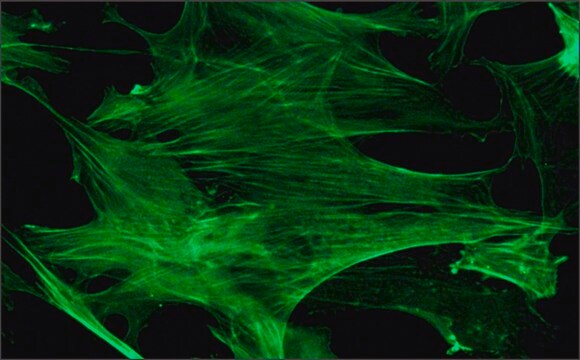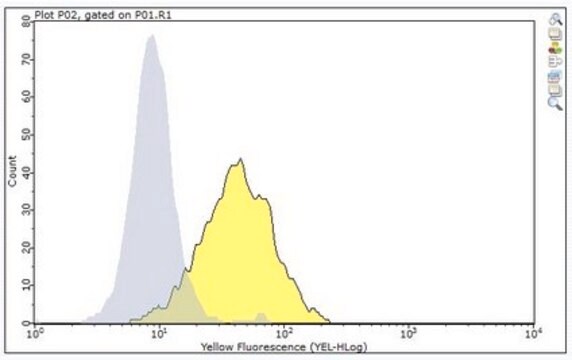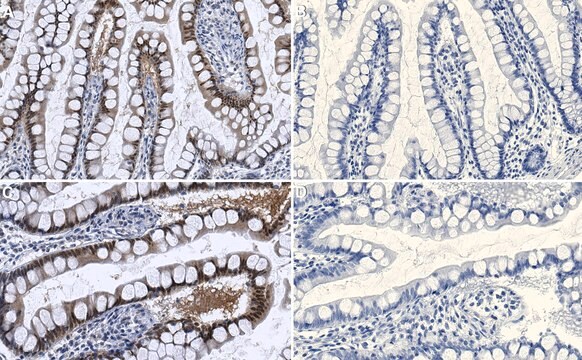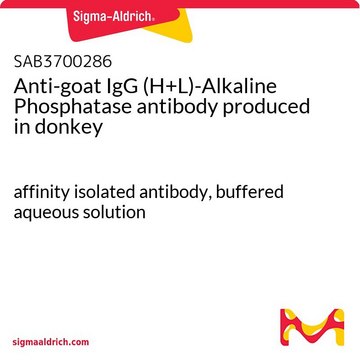MABN1840
Anti-Neuritin (CPG15) Antibody, clone A6.1
clone A6.1, from mouse
Sinonimo/i:
candidate plasticity gene 15, CPG15
About This Item
Prodotti consigliati
Origine biologica
mouse
Forma dell’anticorpo
purified immunoglobulin
Tipo di anticorpo
primary antibodies
Clone
A6.1, monoclonal
Reattività contro le specie
rat, human
Reattività contro le specie (prevista in base all’omologia)
monkey (based on 100% sequence homology), bovine (based on 100% sequence homology)
Confezionamento
antibody small pack of 25 μg
tecniche
western blot: suitable
Isotipo
IgG2bκ
N° accesso NCBI
N° accesso UniProt
modifica post-traduzionali bersaglio
unmodified
Informazioni sul gene
human ... NRN1(51299)
Descrizione generale
Specificità
Immunogeno
Applicazioni
Neuroscience
Qualità
Western Blotting Analysis: 0.5 µg/mL of this antibody detected recombinant human/rat Neuritin (CPG15).
Descrizione del bersaglio
Stato fisico
Stoccaggio e stabilità
Altre note
Esclusione di responsabilità
Non trovi il prodotto giusto?
Prova il nostro Motore di ricerca dei prodotti.
Certificati d'analisi (COA)
Cerca il Certificati d'analisi (COA) digitando il numero di lotto/batch corrispondente. I numeri di lotto o di batch sono stampati sull'etichetta dei prodotti dopo la parola ‘Lotto’ o ‘Batch’.
Possiedi già questo prodotto?
I documenti relativi ai prodotti acquistati recentemente sono disponibili nell’Archivio dei documenti.
Il team dei nostri ricercatori vanta grande esperienza in tutte le aree della ricerca quali Life Science, scienza dei materiali, sintesi chimica, cromatografia, discipline analitiche, ecc..
Contatta l'Assistenza Tecnica.